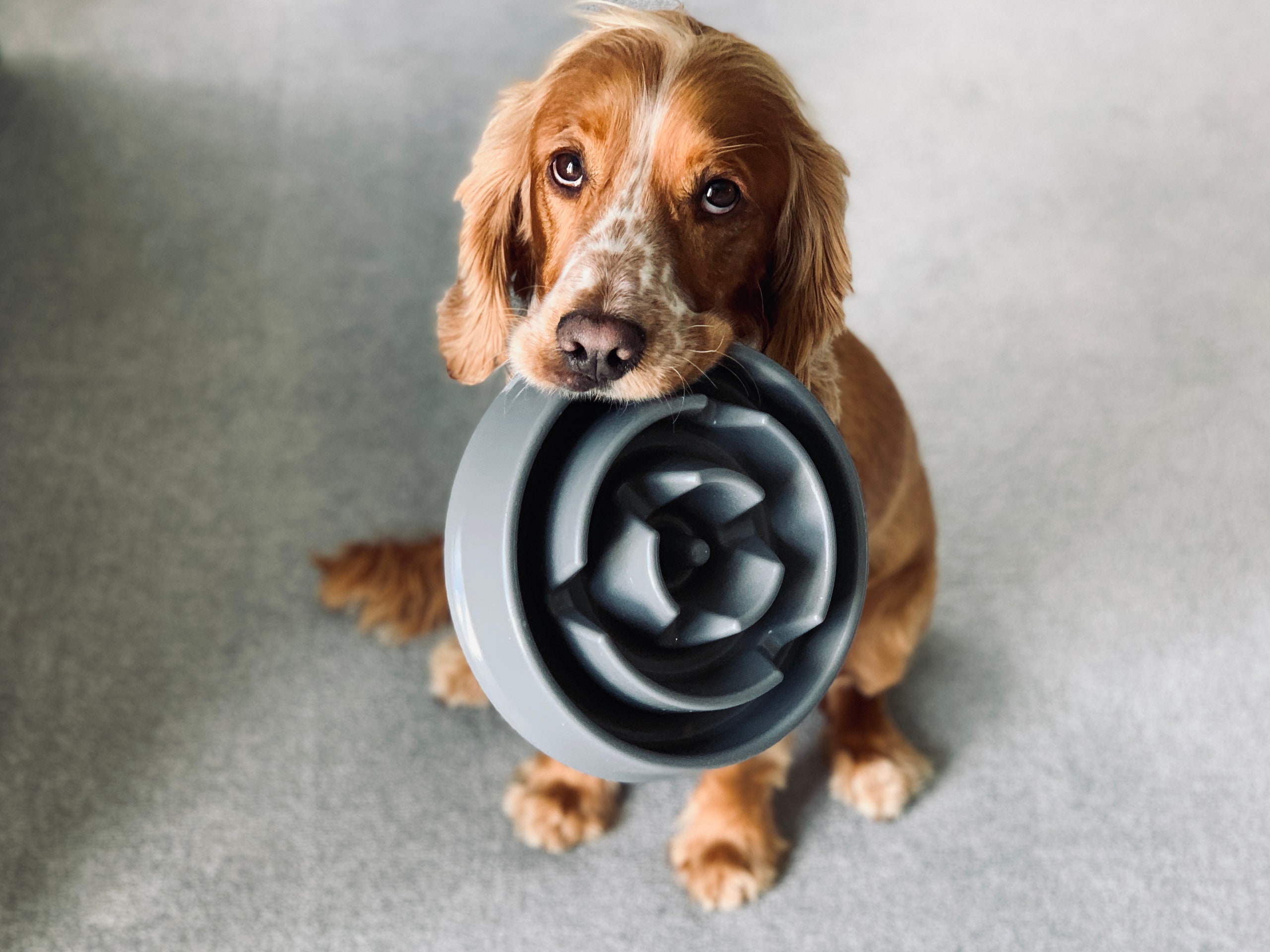
Pekingese dogs are a breed that is great for all kinds of lifestyles. They are independent, intelligent, and low in activity. These traits make them great pets for both new and experienced pet owners. They are very loyal to their families and love them unconditionally.
Dogs with low activity
Pekingese, which are low-activity, are an excellent choice for anyone looking for a dog who doesn't need a lot of exercise. The Pekingese are social dogs that can make friends easily and live in many homes. However, they can bark quite a lot and can become withdrawn around strangers. As such, they should be introduced to children and adults from an early age. Like all dogs, they deserve to be treated with respect.
If you're looking for a low-activity Pekingese, make sure to check the breed's health history before buying a puppy. It is susceptible to respiratory disease and intervertebral dismal. Patellar Luxation, which is the popping of the kneecaps, can also occur. However, it is difficult to find health problems during the puppy stage. A reputable breeder will have certificates of health to show buyers that their animals are healthy.
Self-important
Pekingese dog breeds are rich in history. Their origins date back to the 8th-century, when they were known by the name "Fu Lin" or "the Lion Dogs of China." For centuries, they were carefully tended to by the Chinese royals. Later, they made their way to the west and became popular worldwide. They are proud, loyal people, full of self-importance and confidence.

Pekingese are a small breed, but their history is long and they are the most influential dogs in China. Their ancestors were household pets, companions and even show dogs. Pekingese are proud, intelligent and regal making them excellent pets. Pekingese are loving and affectionate, but also demanding attention. If they don't receive the attention they desire, they may growl at others and be jealous.
Intelligent
The Pekingese breed is an intelligent and well-rounded choice for anyone looking to add a dog to their family. Pekingese can be a good dog for children as they are not aggressive. Pekingese are small dogs so they can be easily hurt by children playing rough with them. They are also prone to snapping if they feel threatened.
Pekingese dogs are among the smartest on the market. The average intelligence of the Pekingese is roughly equal to that of a two-year old child. However, there are many factors which can influence how smart a pet dog is. One factor is training. A dog breed that is naturally intelligent is easier to train than one that doesn't. In addition, a dog's intelligence should be compatible with your lifestyle.
Independent
Pekingese independent breeds are often described by people as "royal dogs", though their royal appearance doesn't seem all that intimidating. They are affectionate and loyal to their family, but can be shy and reserved around strangers. They get along well with other dogs and cats, as long as their supremacy is acknowledged.
Independent Pekingese breeds of dog are intelligent and affectionate. Despite their small size, they require little exercise. However, their strong personalities demand lots of affection and attention. Pekingese also need a cool environment as their brachycephalic shape makes them susceptible to overheating in hot weather.

Pekingese can be house pets and are great for families. However, they might not get along with young children. This means that they must be socialized at an early age and must be treated with respect by children.
Sturdy
Pekingese dog breeds known as stubborn Pekingese are notorious for being stubborn, even when taught to behave. Their stubborn nature is not the only reason they require special care for their eyes. This breed is susceptible to eye infections so regular examinations are important in order to maintain their health.
The Pekingese has been called the "lion dog" or "sun dog" throughout history. Because of their regal origins, they can bark much louder than their size. For this reason, they need to be socialized early on. They are also very independent, so it is important to have patience.
Pekingese coats are dense and fluffy, so it is important to brush them daily to keep them looking shiny and healthy. Also, pay particular attention to the areas surrounding the ears.
FAQ
Should I spay/neuter/neuter my dog or not?
Yes! It is important to spay and neuter your dog.
Not only does it reduce the number of unwanted puppies in the world, but it also reduces the risk of certain diseases.
Female dogs are more likely to get breast cancer than male dogs.
The risk of testicular tumors is higher in males and females.
The spaying or neutering of your pet can also help to prevent her from having babies.
Are there any signs my dog may be ill?
Several symptoms indicate your dog is sick. The following symptoms can be seen:
-
Vomiting
-
Diarrhea
-
Lethargy
-
Fever
-
Weight loss
-
Reduction in appetite
-
Coughing
-
Difficulty breathing
-
Bleeding from behind the nose
-
Stool or urine contaminated with blood
These are just some examples. Your vet will be able to tell you what to watch out for.
How do I know if my dog has fleas?
Your pet may be suffering from fleas if he/she is constantly scratching his fur, licking himself excessively, or looks dull and untidy.
Flea infestations could also be suspected if you notice redness on your pet’s skin.
It is important to take your pet immediately to a veterinarian for treatment.
Do I choose a puppy or kitten?
It really depends on who you are. Some people like kittens while others prefer puppies.
In general, however puppies are more active, playful, and social than cats. Kittens are gentle and tend to sleep a lot.
Both types of animals need lots of attention from their parents. They will grow up quickly and need a lot of care.
You will need to take them to the vet for regular checkups. You will need to take them to the vet regularly.
What should I do if my dog bites someone?
You should first check that the animal you are being attacked is not rabid. If that is not possible, get help. You could be seriously hurt if you try to manage the situation yourself.
If the animal bites, but is not aggressive then you can take it to a vet clinic. Your vet will examine it, and then advise you if additional treatment is necessary.
In most cases, rabies shots are required. These should never be administered by you. Only qualified people should perform this task.
What are the responsibilities that pet owners have?
A pet owner must love his/her pet unconditionally. They must provide for their basic needs like shelter, water and food.
They should teach them good behavior. The pet owner must not neglect or abuse it.
He should be responsible enough to clean up after it.
Statistics
- It's among a relatively few companies that provide policies with a full (100%) coverage option, meaning you are not responsible for any co-payment of bills. (money.com)
- In fact, according to ASPCA, first-year expenses can sum up to nearly $2,000. (petplay.com)
- Pet insurance helps pay for your pet's medical care, with many policies covering up to 90 percent of your vet bills. (money.com)
- Monthly costs are for a one-year-old female mixed-breed dog and an under one-year-old male domestic shorthair cat, respectively, in excellent health residing in Texas, with a $500 annual deductible, $5,000 annual benefit limit, and 90% reimbursement rate. (usnews.com)
- Here's a sobering reality: when you add up vaccinations, health exams, heartworm medications, litter, collars and leashes, food, and grooming, you can expect a bill of at least $1,000 a year, according to SSPCA. (bustle.com)
External Links
How To
How to train your pet cat
To train your cat, you should first understand what kind of animal he/she really is. Cats have complex brains. Cats are intelligent and highly emotional. Your cat's personality is an important aspect of your cat's behavior. You have to learn how to take care of your cat.
It is important for cats to be independent. This means that cats do not like to hear "no." So if you tell them "no," they may get angry at you. If your cat does something wrong, don't force them to do it. It is important to show affection and love to your cat but you shouldn't treat them like a human being.
If you think that your cat has some problems, then you should try to solve them together. Talk to your cat calmly, and be gentle. Do not yell at him/her. Don't make your cat feel bad by yelling at him/her. Also, you cannot force your cat to eat. Sometimes your cat may refuse to eat. When this happens, you should give him/her some treats. However, don't over-indulge as this could lead you to overeating.
Your cat should be kept clean at all times. You should wash your cat every day. Use a moist cloth to remove dirt and dust. Verify that your cat does not have fleas. Flea bites can cause skin irritation and allergy. Flea bites can lead to skin irritation and allergic reactions. You should treat them with a special shampoo.
Cats are social animals. They love spending time with people. It is important that you spend quality time with your pet cat. Play with him/her. Feed him/her. Cuddle him/her. These activities will make your cat smile.
It is important to start training your cat early if you want to be successful. Start training your kitten when he/she is only two weeks old. The best age to begin training your cat is around three months old. Your cat will be fully grown by this time and ready to learn new things.
You should explain everything step by step when you teach your cat tricks. For example, when teaching your cat to sit down, you should show him/her the chair first. Then, reward your cat by giving him/her a treat. These steps should be repeated until your cat understands.
Keep in mind that cats are intelligent animals. Cats can quickly figure out how they should perform tasks. However, they still require patience and persistence. It is unrealistic to expect your cat can master a task immediately. Give your cat lots of time to practice before giving in.
Keep in mind that cats come from the wild. They are naturally curious and playful. If you let your cat run free, he/she might accidentally knock objects away. To prevent accidents, place your cat in a secure area that won't cause injury to him/herself.